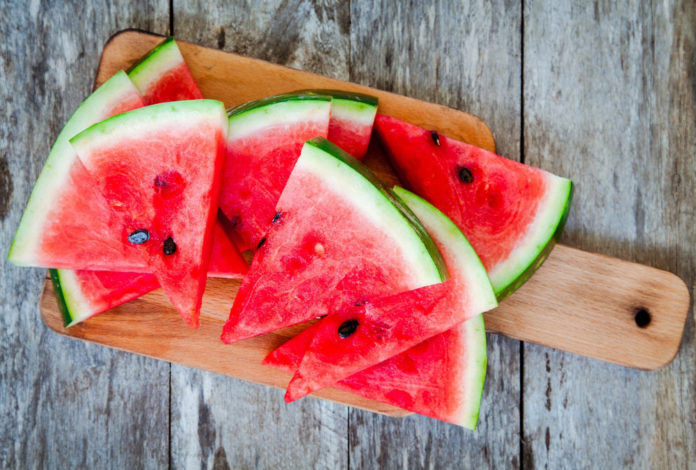Watermelon Seed Nutrition
The nutritional value of watermelon seeds is granted once they are “sprouted,” which are germinated and tend to be higher in nutrients compared to their non-sprouted counterparts. Essentially, and in the case of watermelon seeds, sprouting removes the black shells that block the nutrients within the seeds’ inner layer. According to USDA’s National Nutrient Database, sprouted watermelon seeds supplies 160 calories, 10 grams of protein, 11 grams of fat, four grams of carbohydrate, and one gram of fiber per one ounce. Watermelon seeds are also a rich source of folate, niacin, thiamin, copper, iron, magnesium, manganese, phosphorous, potassium, and zinc.
The Top 6 Watermelon Seed Benefits
1. Makes A Nutritious Snack
Rather than reaching towards the chip bag, fill that snack craving with nutrient-dense watermelon seeds. The high protein and healthy fat content can minimize hunger levels to keep you fueled and nourished until your next meal.
2. Supports Muscle
While watermelon lacks protein itself, snacking on the seeds offers 10 grams per ounce! But not only are they a convenient choice following a workout, but vegetarian and vegan-friendly.
3. Promotes Cardiovascular Health
Watermelon seeds can promote cardiovascular health many ways. Being a good source of both monounsaturated and polyunsaturated fatty acids. According to the American Heart Association, these fats are useful in protecting against heart attack and stroke, and lowering levels of “bad” cholesterol in the blood. The iron it supplies is also vital in carrying oxygenated blood throughout the body. The magnesium in watermelon ensure good functioning of heart, regulate metabolic process and maintain high blood pressure.
4. Cares for Skin and Hair
Watermelon seeds can promote skin and hair care related to a number of factors. First off, protein is essential for skin and hair growth, while the healthy fat profile staves against a dry and dull appearance and keeps skin looking and feeling hydrated and moisturized.
5. Manages Diabetes
The careful unification and ratio of protein, carb, and fat can help stabilize blood sugar levels. Magnesium also regulates the metabolism of carbohydrate, which can directly impact blood sugar level.
6. Supports the Nervous System
Watermelon seeds supply a large volume of B vitamins, which play a key role in keeping the brain and nervous system. The vitamins also prevent against central nervous system and mood disorders, along with various forms of dementia such as Alzheimer’s disease.
How to Enjoy Watermelon Seeds
First off, you really should not be consuming the seeds directly from the fruit, but rather giving them a little more time and attention in the kitchen. Prepare watermelon seeds with the following steps:
- Fill a mason jar with the black watermelon seeds and warm water. Allow to soak overnight, or eight to 12 hours.
- Drain the seeds and rinse with fresh water, repeating this process at least twice a day.
- Within a few days, the sprouts will be noticeable and ready to roast (see ya, unappealing black outer shell)!
- Be sure seeds are completely dry then transfer to a baking sheet. Add a drizzle of olive oil and seasonings as preferred. Mix until evenly coated and dispersed across the pan.
- Put pan into a 375°F oven and roast for approximately 10 minutes.
- Take the dried seeds out of the oven and enjoy as a snack or add to granolas, oats, salads, fried rice, soups, etc. for added nutrients and crunch!






